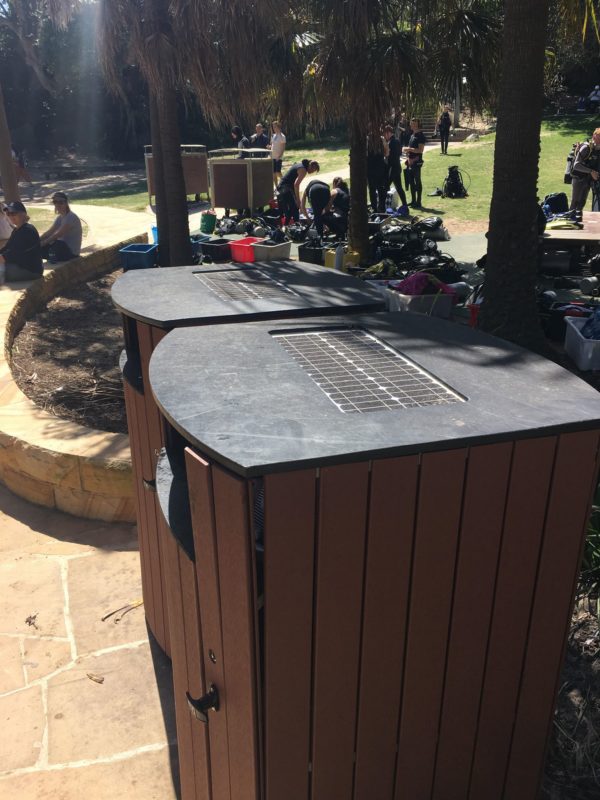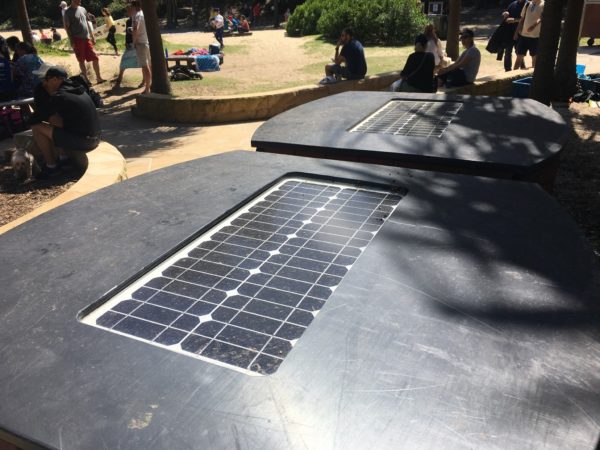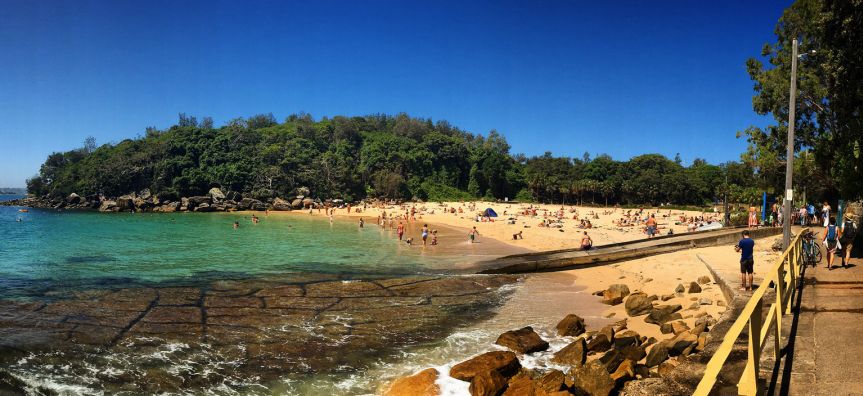Every morning and evening Manly locals and tourists make the pilgrimage, or stroll rather, from Manly to Shelley Beach along Cabbage Tree Bay and the famous Fairy Bower surf break. Shelley Beach, nestled in a cove, is the only western-facing beach on Australia’s east coast, making it the perfect sheltered spot for a dip or a picnic. Many tourists now flock to the picturesque marine sanctuary, and the transformation of the old kiosk into the trendy Boat House café and restaurant ensures that Shelley is busier than ever. To alleviate the stress upon the tiny secluded beach, the Northern Beaches Council is trialling two solar-powered self-compacting smart bins.
The trial is part of the Smart Beaches Project, a partnership between Lake Macquarie City Council, Northern Beaches Council and the University of Technology Sydney to integrate innovative technologies and smart infrastructure toward the improvement and sustainability of some of NSW’s best coastline.

Image: Blake Matich
Northern Beaches Mayor Michael Regan said the smart solar bins were a significant benefit to the community.
The clean energy obtained by the bin’s solar panels is used to compact waste inside the bins, thereby further reducing emissions by the reduction in the number of garbage collections. The Council had previously trialled level sensors in litter bins, but the data was inconsistent.
“Council is always keen to explore avenues to improve waste management around our beaches and parks,” said Regan, “no one likes to see piles of rubbish falling out of bins and it can be difficult to keep up with demand at times.”

Manly locals are an environmentally aware mob, but the famous ferry from Circular Quay to Manly provides a continuous stream of tourists down the Corso and along the scenic stroll to Shelley. While many locals make the pilgrimage with their flat-white filled keep-cups, tourists are often forced to use take away coffee cups; Aussie coffee culture being too strong to resist. The smart solar bins ensure waste produced in the heavily touristed area is taken care of in the cleanest way possible.
The bins were developed locally by Yindi Smart Bins, the word “Yindi” means “the Sun” in the language of the Yindjibarndi people of the Pilbara region of Western Australia.
This content is protected by copyright and may not be reused. If you want to cooperate with us and would like to reuse some of our content, please contact: editors@pv-magazine.com.









By submitting this form you agree to pv magazine using your data for the purposes of publishing your comment.
Your personal data will only be disclosed or otherwise transmitted to third parties for the purposes of spam filtering or if this is necessary for technical maintenance of the website. Any other transfer to third parties will not take place unless this is justified on the basis of applicable data protection regulations or if pv magazine is legally obliged to do so.
You may revoke this consent at any time with effect for the future, in which case your personal data will be deleted immediately. Otherwise, your data will be deleted if pv magazine has processed your request or the purpose of data storage is fulfilled.
Further information on data privacy can be found in our Data Protection Policy.